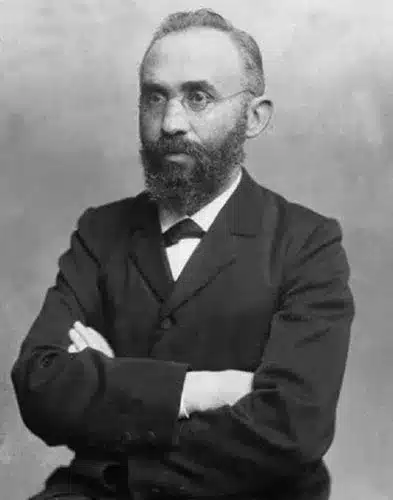Hendrik Lorentz: Pioneering the Foundations of Modern Physics

Hendrik Lorentz (18 July 1853 – 4 February 1928) was a Dutch physicist. He received the 1902 Nobel Prize in Physics.
Life and Career
He was born on 18 July 1853, in Arnhem, Netherlands. He enrolled in the Hogere Burger School in Arnhem in 1866. In 1870, he finished his classical language course to qualify for university. In 1870, he enrolled at the University of Leiden and graduated with a bachelor’s degree in science. Lorentz went back to his hometown and worked at an evening school while doing research for his thesis on the reflection and refraction of light.
He earned his doctorate in 1875. His thesis was about the refraction and reflection of light, and he extended Maxwell’s electromagnetic theory with it. He became a professor of mathematical physics at Leiden in 1878. In physics, he did a lot, but he was primarily interested in explaining the relationship between electricity, magnetism, and light. Lorentz presented his first lecture at Leiden University in 1878, on ‘molecular theories of physics’.
He became a member of the Royal Netherlands Academy of Arts and Sciences in 1881. During his work on electromagnetic phenomena in relation to light propagation, Hendrik Lorentz introduced a term that was never used before; ‘local time’ implied a time variable. Albert Einstein used his findings in his special relativity theory. The Zeeman Effect was discovered by Lorentz’s former student Pieter Zeeman in 1896 while researching spectral lines.
He developed the Lorentz transformation in 1904 after George Francis FitzGerald independently developed this idea. He resigned in 1912 because he didn’t have enough time to devote to research due to his role as a professor. He died on 4 February 1928 in Haarlem, Netherlands.
Award and Legacy
In 1902 he was awarded the Nobel Prize for Physics for his theoretical explanation of the Zeeman Effect.
Observer Voice is the one stop site for National, International news, Sports, Editor’s Choice, Art/culture contents, Quotes and much more. We also cover historical contents. Historical contents includes World History, Indian History, and what happened today. The website also covers Entertainment across the India and World.

